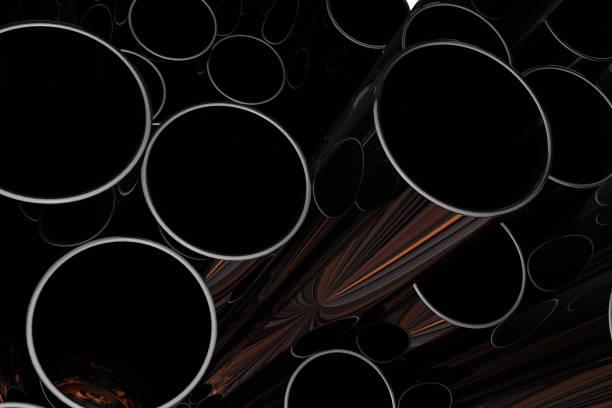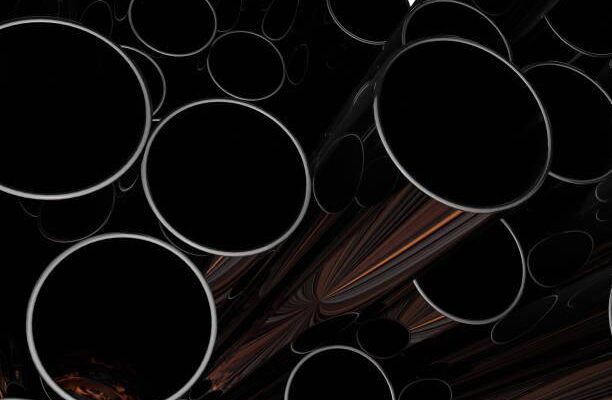
Petrochemical and refinery operations face some of the harshest industrial environments on Earth. Extreme temperatures, corrosive chemicals, and constant pressure create conditions that can destroy inferior piping materials within months. The 309 grade stainless steel pipe has emerged as a critical solution for these demanding applications.
The unique properties of 309 stainless steel pipe make it exceptionally suited for petrochemical environments. This austenitic grade contains higher chromium and nickel content than standard stainless steels, delivering enhanced oxidation resistance at elevated temperatures. Plant operators choose this material specifically for its ability to maintain structural integrity under extreme conditions.
Superior Heat Resistance in Critical Applications
- Elevated Temperature Performance: 309 stainless steel maintains its mechanical properties at temperatures up to 2000°F (1093°C). This exceptional heat tolerance prevents pipe failure in furnace applications, reformer tubes, and thermal cracking units where standard materials would quickly deteriorate.
- Oxidation Prevention: The high chromium content forms a protective oxide layer that resists scaling and oxidation. This barrier prevents the metal degradation that commonly occurs in high-temperature petrochemical processes, extending equipment life and reducing maintenance costs.
Corrosion Resistance Against Harsh Chemicals
- Chemical Compatibility: Petrochemical processes involve exposure to sulfur compounds, acids, and other corrosive substances that attack conventional piping materials. The alloy composition resists pitting, crevice corrosion, and stress corrosion cracking that plague carbon steel and lower-grade stainless steels in these environments.
- Long-Term Durability: The material’s resistance to both oxidizing and reducing environments makes it suitable for diverse petrochemical applications. This versatility reduces inventory requirements and simplifies material selection for complex plant operations.
Critical Applications in Petrochemical Operations
- Cracking Unit Implementation: Fluid catalytic cracking units operate at extreme temperatures where 309 stainless steel pipe excels. The material handles the thermal cycling and corrosive environment while maintaining dimensional stability, preventing costly shutdowns from pipe failures.
- Refinery Heater Systems: Furnace tubes and connecting piping in refinery heaters benefit from the superior creep resistance of 309 stainless steel. The material resists deformation under high-temperature, high-pressure conditions that cause premature failure in other alloys.
- Chemical Processing Plants: Reactors, heat exchangers, and transfer lines in chemical plants rely on 309 stainless steel for its broad chemical resistance. The material handles diverse process chemicals without the compatibility concerns that limit other piping materials.
Economic Benefits and Operational Advantages
Plants using inferior piping materials face frequent replacement cycles, unplanned maintenance, and production disruptions. These issues create substantial hidden costs that eat into profitability and compromise operational reliability.
- Extended service life reduces replacement frequency and associated labor costs.
- Lower maintenance requirements decrease planned and unplanned downtime.
- Superior reliability prevents costly emergency repairs and production losses.
- Broad temperature range eliminates the need for multiple piping materials.
Maintenance Reduction: The corrosion and heat resistance of 309 stainless steel significantly reduces inspection and maintenance requirements compared to carbon steel or lower-grade stainless alternatives. This reduction translates directly into lower operating costs and improved plant availability.
Safety Enhancement: The material’s resistance to sudden failure modes improves plant safety by reducing the risk of leaks, ruptures, and associated hazards. This reliability factor becomes crucial in high-pressure, high-temperature petrochemical applications where failures can have catastrophic consequences.
Specification Considerations for Optimal Performance
- Grade Selection: ASTM A312 covers seamless and welded 309 stainless steel pipe for general corrosion-resistant applications. For high-temperature service, ASTM A213 provides specifications for seamless tubes used in boilers, superheaters, and heat exchangers.
- Wall Thickness Requirements: The high-temperature strength of 309 stainless steel allows for optimized wall thickness selection. Engineers can specify thinner walls than required for carbon steel applications, reducing material costs and weight without compromising safety margins.
Conclusion
The demanding conditions in petrochemical and refinery operations require piping materials that can withstand extreme temperatures, corrosive chemicals, and constant operational stress. 309 stainless steel pipe delivers the performance characteristics needed to maintain safe, reliable operations in these challenging environments. For engineers and procurement professionals seeking to improve plant reliability and reduce long-term operating costs, specifying 309 stainless steel pipe represents a proven investment in operational excellence.
Featured Image Source: https://media.gettyimages.com/id/1048097938/photo/stack-of-shiny-metal-steel-pipes-with-flame.jpg?s=612×612&w=0&k=20&c=crSGMm6TE7PeJwiTs9eaMenya3vFqPbj7wDU8eU5STY=

